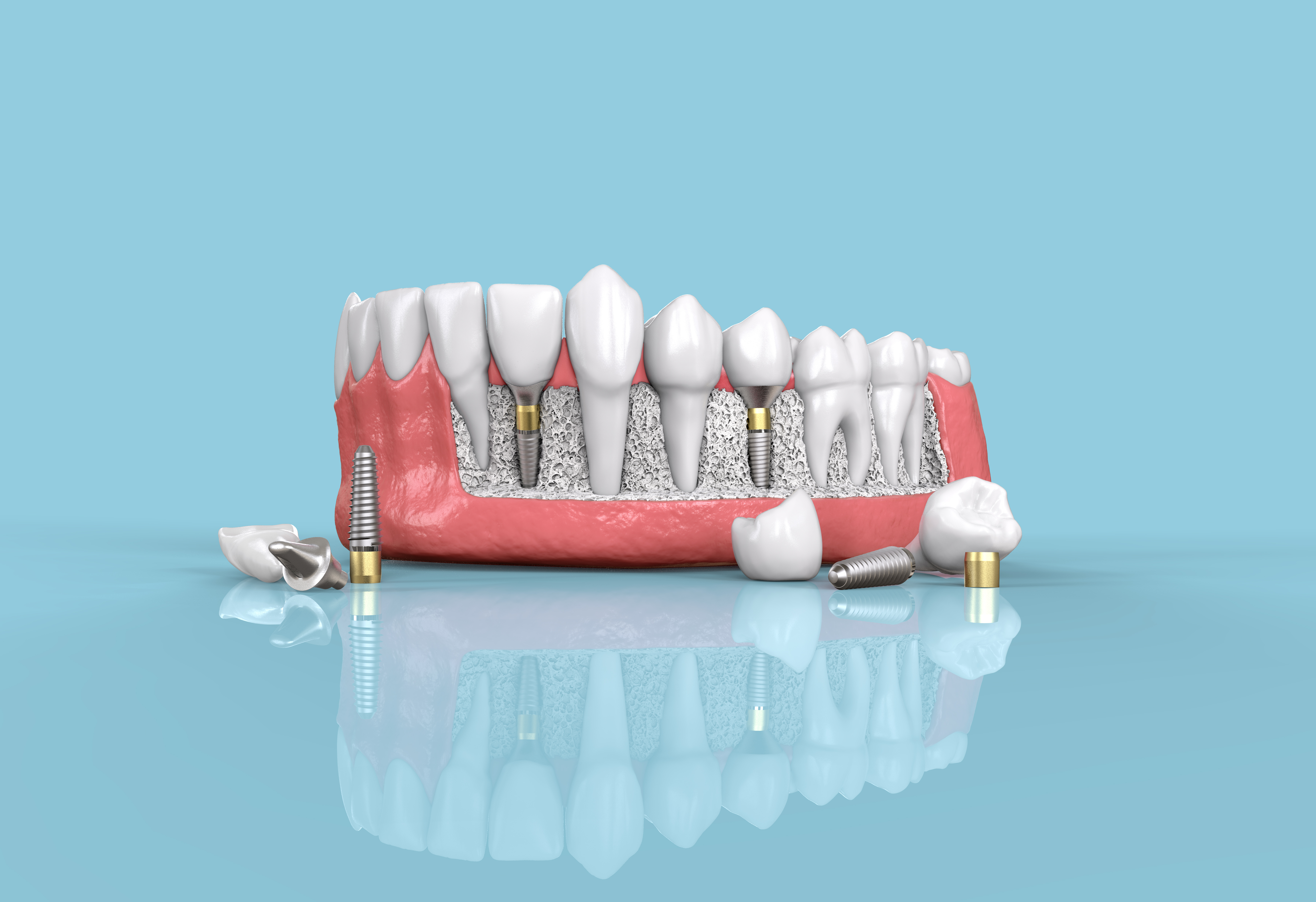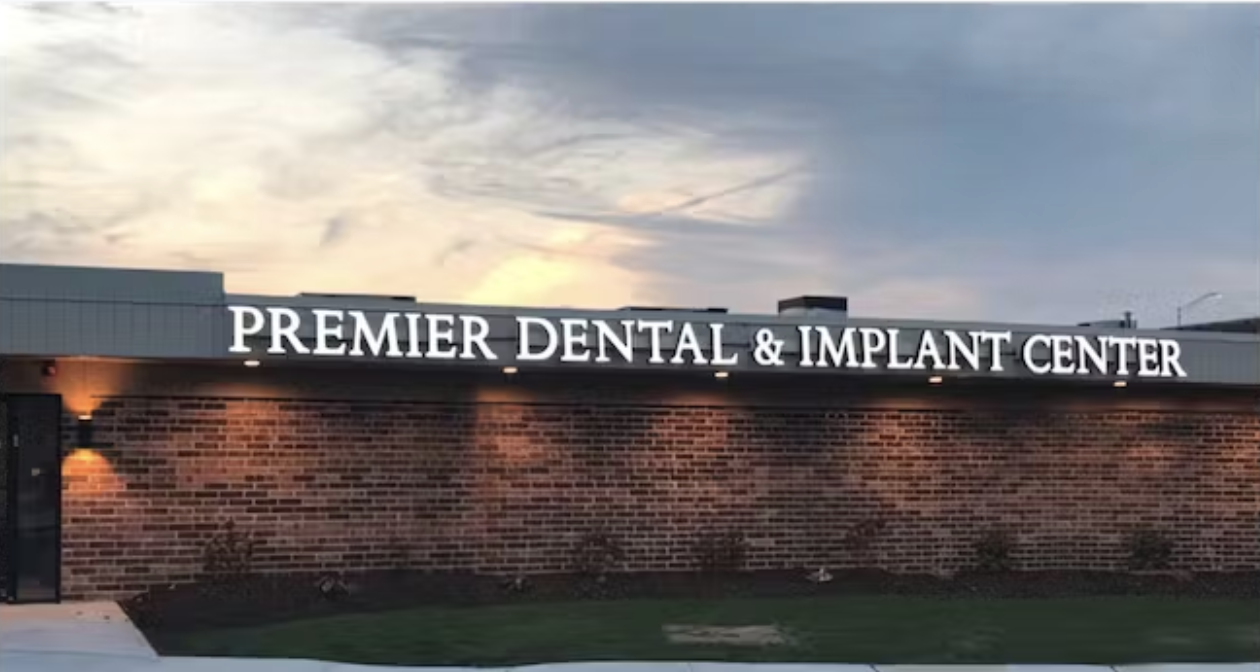Immediate vs. Delayed Dental Implant Placement: Which Is Better?

Tooth loss is a serious oral health problem. Missing teeth can make it difficult for patients to bite, chew, and speak properly. In terms of tooth loss treatment, there is no dental procedure that offers more security, stability, or comfort than dental implants. Dental implants are titanium posts that act as artificial tooth roots. Dental implants are surgically implanted into the jaw, where they fuse with the natural bone tissues to provide a stable anchor for a wide range of dental restorations such as dental crowns, bridges, and dentures.
Understandably, most people want to address tooth loss right away. In many cases, dental implants can be placed immediately after a tooth is lost or extracted. However, in some situations, delayed placement is necessary.
As an experienced implant dentist, I will discuss immediate vs. delayed implant placement with my Orland Park, IL, patients, and help them understand which is most appropriate for their unique circumstances.
Dental Implant Candidacy
Each patient is different and has unique needs. During your initial consultation at my Orland Park dental office, I will perform an exam and discuss your history and goals. We use state-of-the-art dental technology, such as low-radiation digital X-rays and cone-beam computed tomography (CBCT) scans. This allows us to accurately diagnose and determine if you are a candidate for dental implants and if immediate or delayed placement is best for you. You may be a candidate for immediate placement if:
1. You Are in Good Oral Health
This is very important as issues such as tooth decay or gum disease can inhibit proper healing, which can lead to implant failure.
2. You Are in Good Overall Health
Patients with issues such as diabetes should have their blood sugar managed before implant placement. If you have any health concerns or take any medications, it is very important that you share that information with our team during your consultation so I can ensure your safety and plan treatment appropriately.
3. You Do Not Smoke
Tobacco use has been linked to an increased risk of implant failure. If you use any tobacco products, it is best that you quit before implant placement.
4. You Have Sufficient Bone Material
As you heal, a process called osseointegration occurs. This means the implants fuse to the jawbone. If you do not have sufficient bone density, this can lead to implant failure.

Immediate Implant Placement
Whenever possible, it is best to undergo dental implant treatment as soon as possible after tooth loss or extraction has occurred. Early treatment is preferred because the longer a missing tooth is left untreated, the greater the impact it will have on the overall health and structure of the mouth.
Without the support of the missing tooth (or teeth), adjacent teeth are likely to shift and loosen.
Missing tooth roots also affect your oral health. One of the primary functions of a tooth’s root is to absorb the shock of a bite. In turn, the tooth roots provide stimulation to the jawbone that encourages the continual growth of healthy bone and tissues. If the roots of a tooth are not replaced, the jawbone will eventually weaken and deteriorate. This can lead to a sunken facial appearance and even cause further tooth loss.
When appropriate, immediate dental implant placement can benefit patients in the following ways:
- Immediate dental implant placement preserves the strength, function, and aesthetics of the smile
- Immediate implant placement maintains the strength and integrity of the jaw
- Immediate dental implant treatment can prevent the need for further surgical procedures, such as a bone graft or sinus lift
"Early treatment is preferred because the longer a missing tooth is left untreated, the greater the impact it will have on the overall health and structure of the mouth."
Delayed Implant Placement
Although there are many advantages to immediate implant placement, it is not always possible to treat tooth loss right away. Since the primary goal of implant treatment is to ensure it will be a success, it is important to consider when delayed implant placement may be the better option for patients.
In the following situations, it is best to delay implant placement until the gums and jaw can properly support dental implants:
- When an infection or other dental complications are present
- When the patient has experienced jawbone degeneration at the site of tooth loss
- When a molar or premolar has been lost (these teeth have larger roots, and data suggests immediate implant placement may not be the best option for these teeth)
In these cases, implant placement should be delayed by a few months so that the surrounding tissues can heal, or other potential sources of implant complication can be addressed.
Delayed Implant Treatment: What to Expect
When I determine that a patient will benefit from delayed dental implant placement, I will craft a customized treatment plan. The goal of delayed implant placement is to help a patient achieve a healthy foundation for their dental implants. This also reduces the risk of implant failure, as issues like bone density, decay, and infection can prevent proper healing. Here are some possible treatment options for patients who do not qualify for immediate implant placement:
- Periodontal Treatment - For patients with gum disease, periodontal treatment such as scaling and root planing can help eliminate the cause of your gum disease and restore your oral health.
- Treatment for Other Infections - For patients with infections or decay in the tooth or mouth, treatment such as root canal therapy can help address the infection. Other treatments may include antibiotics or even tooth extraction in the case of severe decay.
- Bone Grafting - Patients experiencing jaw bone deterioration may require bone grafting before dental implant placement. A bone graft builds up the area of bone loss, providing adequate material for the dental implant to graft to. This is essential as implants without sufficient bone material are at a greater risk of failure. Patients with mild-to-moderate bone loss may qualify for All-on-4® or All-on-6® treatment without bone grafting. However, patients with significant bone loss may require bone grafting before implant placement can proceed.
- Sinus Lifts - Bone loss in the upper jaw can lead to issues with the sinuses. By raising the sinus floor and placing grafting materials, patients can later qualify for dental implant placement to prevent further bone loss.

Learn More in a Consultation
If you’d like to learn more about dental implant placement, contact us at your earliest convenience. I am happy to answer any questions you may have about dental implant treatment, and whether immediate or delayed implant placement is right for you.
 About Yamen Akhras, DDS
About Yamen Akhras, DDS
Dr. Yamen Akhras completed training in dental implants from the Misch Institute and the Urban Regeneration Institute. He specializes in treating gum disease, placing implants, and bone and gum grafting.
Read Dr. Akhras's Full Bio | All Posts by Dr. Akhras


